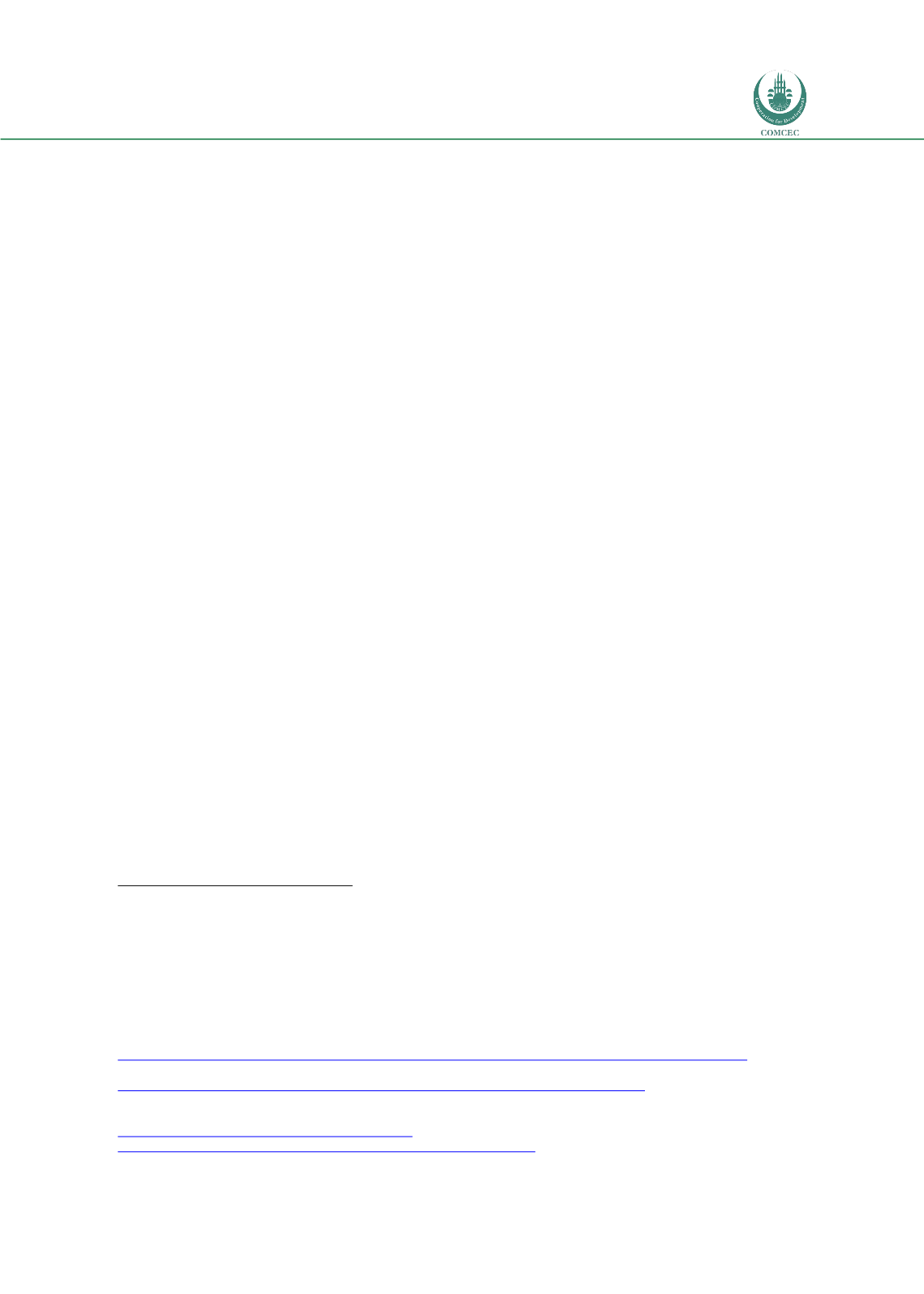

Forced Migration in the OIC Member Countries:
Policy Framework Adopted by Host Countries
83
forced migrants to complete registration. As of March 2016, Syrians registering for temporary
protection must pass through a two-step process of registration with the police and PDMM.
Several sources noted that in some cases this process takes between seven and eight months
to complete.
86
Without finishing their registration, temporary protection beneficiaries do not
receive Foreigner Identification Numbers, and thus do not have access to non-emergency
health care services.
87
The language barrier is another significant hindrance to efficient medical care. In Turkish
public hospitals, the only way to make appointments is by telephone, and hardly any phone
operators speak languages other than Turkish. When forced migrants eventually do see the
doctor, communication troubles abound; hospitals rarely have the translation capacity to
facilitate these visits.
88
Two other major implementation barriers concern access to and continuity of medical care. It
has been reported in several provinces that Syrians are unable to access medical care, either
due to overcrowding of hospitals, inattention to circulars on medical care, or an out-of-date
Foreigners Identification Number (obtained at registration).
89
Furthermore, many forced
migrants have chronic diseases, often developed or exacerbated by their journey and poor
living conditions in Turkey.
90
Follow-up appointments are extremely important not only for
chronic diseases but also for people requiring multi-dose vaccinations for communicable
diseases.
91
Due to scarce housing and job insecurity, Syrians have become increasingly mobile,
and there is no system to track who has missed part of their vaccination dosage.
92
3.1.4.
Conclusions and Assessment of Impacts of Forced Migration
Costs to Host Communities
When Syrians first arrived in Turkey in 2011, the Turkish government referred to protected
Syrians as “guests.” This gave the impression that they would only be staying briefly. Five
years later repatriation does not appear any closer. The section below will outline two impacts
of the influx of Syrians on Turkish society, followed by several outcomes resulting from the
combination of those impacts, negative perceptions, and miscalculation of the Syrians’ length
of stay.
The most direct cost to Turkey has been the financial burden undertaken by the government
to register and provide services for the nearly 3 million people currently receiving protection,
without substantial external assistance. The fact that Syrian refugees went to other countries
in the region that are smaller and poorer than Turkey in proportionally larger numbers put
86
Alp Biricik (Project Coordinator, Human Resources Development Foundation (İKGV) – Esenler) in conversation with
Kathleen Newland, May 6, 2016; Istanbul Multi-Service Center (İstanbul Çok Yönlü Destek Merkezi) in conversation with
Kathleen Newland, May 6, 2016; Pascale Moreau, (UNHCR Representative in Turkey) in conversation with Kathleen
Newland, May 3, 2016.
87
Refugee Rights Turkey,
Country Report: Turkey
, 132.
88
Refugee Rights Turkey,
Country Report: Turkey
, 131.
89
Refugee Rights Turkey,
Country Report: Turkey
, 131; Osman Bahadır Dinçer et al.,
Turkey and Syrian Refugees: The Limits
of Hospitality,
18.
90
Kemal Kirişci,
Syrian Refugees and Turkey’s Challenges: Going Beyond Hospitality
.
91
The Children’s Hospital of Philadelphia, “Vaccine Safety: Dosing Safety,” accessed May 23, 2016,
http://www.chop.edu/centers-programs/vaccine-education-center/vaccine-safety/dosing-safety#.V0SzPISDFBc ;Sarah
Klein, “ Why Some Vaccines Require More Than One Dose,”
The Huffington Post,
February 7, 2015,
http://www.huffingtonpost.com/2015/02/07/more-than-one-dose-vaccines_n_6632776.html .92
Ezra Özpınar,
How Does The Syrian Refugee Crisis Affect Public Health in Turkey?
(Economic Policy Research Foundation of
Turkey (TEPAV), April 2016),
http://www.tepav.org.tr/upload/files/1461074810- 2.How_Does_the_Syrian_Refugee_Crisis_Affect_Public_Health_in_Turkey.pdf .















